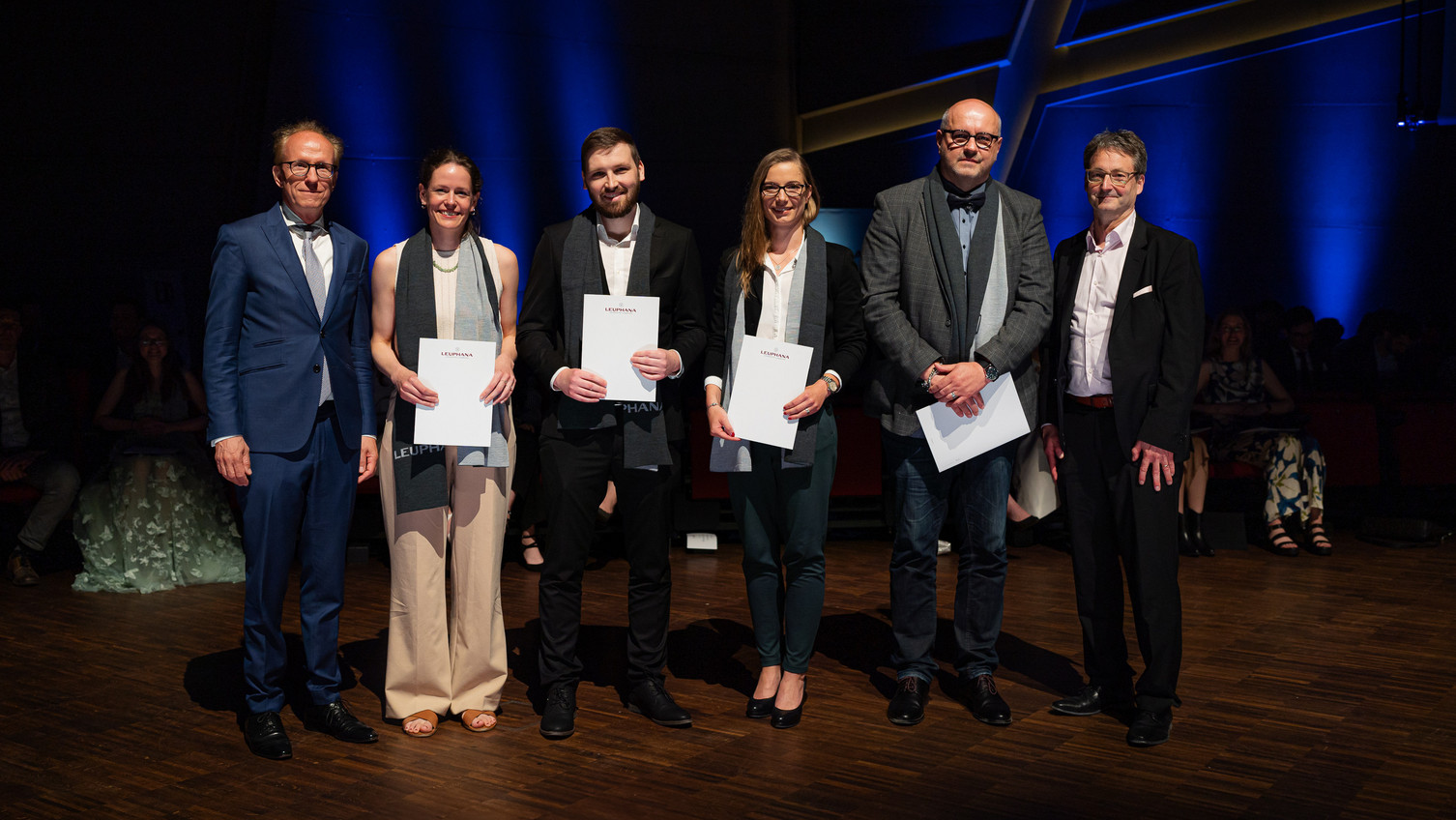Helmholtz honor for Zina Kallien
2024-07-03 Success for Hereon and Leuphana cooperation
"It's all in the mix," says Dr. Zina Kallien. "I love writing, but I'm also happy when I can spend another day experimenting on the machine."
The engineer at the Institute of Production Technology and Systems (IPTS) at the Leuphana School for Management and technology was awarded the Helmholtz Doctoral Prize in the research field of information this year.
Her work on friction-based manufacturing technologies is thus one of the 11 best doctoral theses within the entire Germany-wide Helmholtz network with a total of 9,000 doctoral students. The prize is linked to an award of 5,000 euros and a research stay at an international institution.
Fruitful cooperation between Helmholtz and Hereon
"This is a great award and a confirmation of the fruitful cooperation between Leuphana and the Helmholtz Hereon Center," says a delighted Prof. Benjamin Klusemann, who supervised Zina Kallien's doctoral thesis. Alongside Prof. Noomane Ben Khalifa and Prof. Norbert Hort, he holds one of the three professorships that the Helmholtz Hereon Research Center in Geestacht shared with the Leuphana School of Management and Technology.
In her academic career, the engineer has benefited greatly from the exchange between the two institutes, as the opportunities at Leuphana are complemented by Hereon's extensive machine infrastructure. "The large-scale research facility in Geestacht allows us to test our research directly in practice. Students can use the technologies there for themselves or make use of the existing characterization options for their studies," says Prof. Klusemann.
Shared know-how
After completing her Master's thesis at Hereon, Zina Kallien also decided to do her doctorate there: "In addition to studying at Leuphana, the Helmholtz network with its experts and infrastructure is an absolute added value," she says. The researcher was able to make good use of the network and the machines, as her doctoral thesis deals with more sustainable production technology. It is about friction cladding, an innovative process for coating and additive manufacturing.
Researching sustainable processes
Friction cladding enables metallic materials, such as aluminum, to be clad without the material having to be melted. This offers many advantages over such processes, which require a lot of energy to melt the material. In addition, melting can lead to the evaporation of individual alloying elements, which can produce toxic gases or fail to achieve the desired properties.
The award-winning research work now offers a comprehensive investigation of friction cladding and includes both the simulation of the process and experiments with characterization of the welded samples. The results shown are promising and confirm the sustainable potential of this technology. Especially regarding the application and long-term establishment of this "green" technology, Kallien's work provides important results and forms the basis for further development and optimization.
"This naturally contributes to our mission of researching sustainable production processes," says Prof. Klusemann. "To develop sustainable solutions for aviation or the automotive industry, interdisciplinary collaboration, such as here between materials science, mechanics and production engineering, is absolutely essential”, says Klusemann.
Publications create international visibility
The basic research and technology transfer driven by the cooperation between Hereon and Leuphana also enable the successful acquisition of third-party funded projects. Under the leadership of Prof. Klusemann, a European Research Grant worth two million Euros was won, from which Zina Kallien's research also benefited.
"In addition to Zina, who herself has published very well and to a very high standard, the fruitful research at Hereon also allows our other scientists to publish their findings in high-quality specialist journals. This in turn gives us a high level of international visibility," says Klusemann.
Zina Kallien will also continue to actively research various topics. She has been employed as a post-doc at the IPTS since January 1: "There's still a lot to find out," she says with a laugh.

